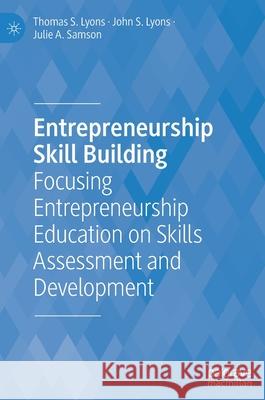Entrepreneurship Skill Building: Focusing Entrepreneurship Education on Skills Assessment and Development » książka
topmenu
Entrepreneurship Skill Building: Focusing Entrepreneurship Education on Skills Assessment and Development
ISBN-13: 9783030779191 / Angielski / Twarda / 2021 / 181 str.
Entrepreneurship Skill Building: Focusing Entrepreneurship Education on Skills Assessment and Development
ISBN-13: 9783030779191 / Angielski / Twarda / 2021 / 181 str.
cena 523,30
(netto: 498,38 VAT: 5%)
Najniższa cena z 30 dni: 501,19
(netto: 498,38 VAT: 5%)
Najniższa cena z 30 dni: 501,19
Termin realizacji zamówienia:
ok. 16-18 dni roboczych.
ok. 16-18 dni roboczych.
Darmowa dostawa!
Kategorie:
Kategorie BISAC:
Wydawca:
Palgrave MacMillan
Język:
Angielski
ISBN-13:
9783030779191
Rok wydania:
2021
Wydanie:
2021
Ilość stron:
181
Waga:
0.38 kg
Wymiary:
21.01 x 14.81 x 1.27
Oprawa:
Twarda
Wolumenów:
01
Dodatkowe informacje:
Wydanie ilustrowane











